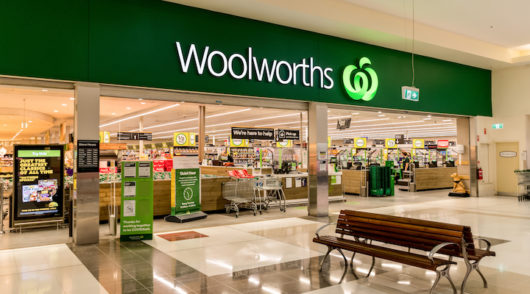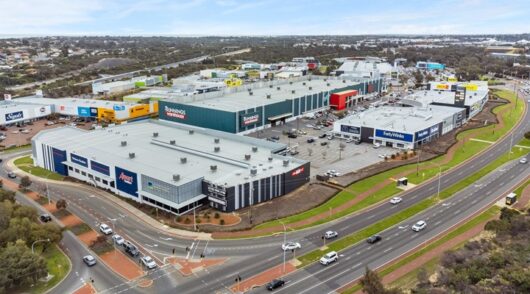Discretionary retail businesses are falling victim to Australia’s increasingly tough economic environment, as the voluntary administration of Marquee Retail Group (MRG) this week further illustrates. The board of directors of MRG, the umbrella that owns accessories brands Colette and The Daily Edited, appointed Domenic Calabretta, Mitchell Ball, and Richard Lawrence of Mackay Goodwin as voluntary administrators on Wednesday, citing an unexpected downturn in sales starting in October last year.
ar.
MRG chairman Bernie Brookes told Inside Retail that the decline in consumer spending is likely to see more established retailers fall into administration, particularly companies that are not well-capitalised and don’t have access to financial backing to navigate this tough economic period.
No longer a marquee retail player
The impact of rising inflation and interest rates on consumer spending, compounded by its ongoing debt arrangement with the ATO, which dates back to the Covid-19-induced drop in sales, exhausted MRG’s viable options to financial credit and restricted access to additional funding that could have kept the retail conglomerate afloat during another tough economic period.
Another contributing factor, according to Brookes, was MRG’s niche focus on accessories. At a time when consumers are watching their discretionary spending, accessories such as leather goods and fashion jewellery are examples of products that many consumers feel they can do without.
In contrast, retailers with multiple different categories, such as department stores that stock homewares, apparel, and electronics etc, are more likely to be able to balance out a decline in spending within one category with revenue from other categories.
Ultimately, Brookes said that MRG didn’t have access to capital to ride out a challenging economic period that he described as worse than the Global Financial Crisis of 2008.
MRG is not the only retailer that has fallen victim to the current environment. In recent weeks, fashion brand Tigerlily entered into voluntary administration amid a sale process, and 90-year-old specialty vacuum retailer Godfreys went into liquidation after administrators failed to find a buyer for the business.
Here’s a recap of Australia’s recent retail administrations.
Tigerlily
In March, the Australian swimwear brand, which is owned by Sydney-based private equity firm Crescent Capital Partners, entered into voluntary administration for a second time, months after appointing Deloitte to assist in the sale of the business last October.
The documents show that PKF’s Glenn Franklin and Jason Stone were appointed as joint administrators. In addition to this, company directors, Crescent Capital’s Michael Alscher and Ziying Sun, stepped down at the start of the year.
Earlier this year, Tigerlily CEO Travis Wright told Inside Retail that the sale of the business, which had been in the works since October last year, was progressing with new prospective owners.
Wright was named CEO in 2021 after Tigerlily fell into voluntary administration for the first time, and she led the business back to growth through an overhaul of operations and an emphasis on online direct-to-consumer sales.
Crescent Capital was understood to be attempting to capitalise on the high demand for beach apparel and Tigerlily’s turnaround through a sale. Further details regarding the decision to place the business into voluntary administration have not been disclosed.
Godfreys
After almost a century in the retail game, Godfreys is being wound down, after administrators failed to find a buyer for the trans-Tasman specialty vacuum retailer.
In January, the business appointed administrators from PwC Australia – Craig Crosbie, Robert Ditrich and Daniel Walley.
At the time, Jane Allen, daughter of Godfreys’ co-founder John Johnston, cited several factors that contributed to the end of the 93-year-old company, including unprecedented business disruptions in the wake of the Covid-19 pandemic.
In addition to this, Allen told Inside Retail, “We have been heavily impacted by consumer confidence and spending due to the economic era of high inflation, rising interest rates, and intense cost-of-living pressures.”
The administrators received 55 expressions of interest, resulting in six indicative offers, but the offers were either not substantially viable, or they were withdrawn.
In March, the administrators confirmed the business would be wound down.
The demise of the discretionary spend
These retail collapses come at a time of historically low consumer confidence, as measured by Westpac’s consumer confidence index, which dipped by 1.8 per cent for March following a promising improvement in February.
According to the index, consumer sentiment has a long-run average of 100.7, making the current 84.4 extremely low comparatively.
Westpac found that consumers were more pessimistic after the RBA’s March cash rate decision compared to those surveyed prior, reflecting an unmet expectation of rate cuts.
Across the retail industry, food and beverage businesses are experiencing extremely high rates of collapse, with over 7 per cent of businesses in the sector closing, both voluntarily and involuntarily, over the past year.
On average, the retail industry has a total business failure rate of 4.6 per cent nationally.
Retailers that operate in discretionary categories with obvious cost-effective substitutions are suffering in the current economic climate.
Anneke Thompson, CreditorWatch, chief economist, told Inside Retail, “While overall the retail sector business failure rate is about average, there are likely to be large variations between discretionary and non-discretionary retailers.”
“Eating out and buying takeaway food are discretionary purchases, with an obvious substitution in buying food at supermarkets and other retail stores and eating at home,” Thompson said.
“We expect that retail trade insolvencies will rise slightly as the year progresses, due to lingering low consumer sentiment, and the strong jobs market pushing out any expectation of a rate cut to later in the calendar year,” Thompson continued.







